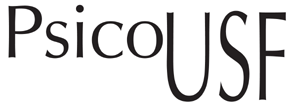Subjects with binge eating disorder (DSM-IV) have been described as being prone to difficulties in thinking processes which are important for the maintenance of their psychopathological picture and their treatment. To assess the cognitive functioning of subjects diagnosed with binge eating disorder. The design was of an exploratory study, and the elected instrument was the Rorschach method, Comprehensive System, which allows us to access the psychological aspects with less conscious control than self-reports, questionnaires and scales. The selected Rorschach variables were those associated with the ideational functioning. The sample consisted of 43 adult women (mean= 37, 2 years) with binge eating disorder. In the Rorschach they showed difficulties in the ideational activity, predominance of a more concrete and immature level of ideation, loss of reality boundaries and boundaries among events. There is also a tendency to cognitions of a negative tone. The defensive use of fragile intellectualizations predisposes these women to emotional overload. However, also observed was a capacity to think in a flexible and constructive way, resources associated with a good prognostic in psychotherapy.
Eating disorders; Cognitive processes; Rorschach test; Projective personality measures

